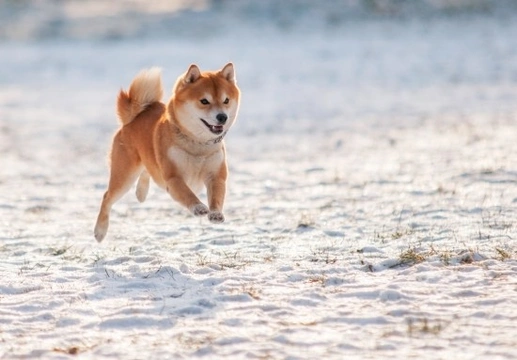
Learning more about the Shiba Inu dog
The Shiba Inu is one of the six dog breeds native to Japan, and is the smallest of them all. With a compact, strong body, the Shiba Inu is agile and sometimes almost cat-like in its movements, and has bags of personality too!
Physically, they are similar in appearance to the Akita Inu, but on a smaller scale! They are strong for their size, tenacious and intelligent, as well as independent and something of a “lone wolf” type of dog. They were originally bred in Japan for hunting fowl and sometimes, prey as large as boars, but today, are popular as pets all across the world.
If you love the look of dogs from the Spitz grouping but have already discounted some of the larger members such as the Akita Inu, you might be considering ownership of a Shiba Inu. In this article, we will give you a little more insight into the breed, and some of their traits and history.
Read on to learn more.
The Shiba Inu name and origins
The word “Inu” in Japanese simply means “dog,” which is why some of the Japanese dogs share this word as part of their breed name! Shiba translates as “brushwood,” which is the type of terrain upon which the Shiba Inu was traditionally used for hunting, as well as being similar in colour to the Shiba Inu coat. The Shiba Inu was bred and developed for hunting, and flushing out game and other prey for hunters in the wild.
Physical traits
The Shiba Inu is a really cuddly-looking dog, with a very thick, double-layered coat that tends to shed prolifically! The long, top layer of the coat is straight and coarse to the touch, while the bottom layer is dense, soft, thick and luxurious.
The Shiba Inu is generally described as a compact dog, as they are slightly longer in the body than they are tall, but nevertheless; they are certainly not a small dog.
The Shiba Inu breed standards state that the dog can grow to 16.5 inches tall at the withers, and may weigh up to 23lb when fully grown.
Guarding and possessive traits of the breed
The Shiba Inu shares many of their personality traits with the larger Akita Inu, albeit in a rather scaled down way!
They require plenty of socialisation with other dogs from a young age, as appropriate play with other dogs without taking the dominant role does not come particularly naturally to them. They can also prove challenging to train, as they are easily bored and do not feel that they should do anything that they don’t want to do! They need an experienced handler who is used to training dogs with a dominant streak, which means that the first-time owner might need to recruit the help of someone with a background in training dominant dogs to help them out.
They have strong hunting instincts, something that it is not always possible to train out of them, and care should be taken when out and about to ensure that the dog does not pose a threat to wildlife or cats. They also have strong protective and guarding instincts, and care should be taken to introduce visitors to the dog properly, and teach the dog the appropriate outlets for their guarding instincts.
They can also be very possessive over their food and toys, a trait that can be hard to manage.
Personality of the Shiba Inu
The Shiba Inu tends to be watchful and suspicious of strangers, and so care should be taken when out and about or when people come to your home to introduce the dog properly. They are not the type of dog to go out of their way to introduce themselves to people that they don’t know and invite them to play!
The Shiba Inu does bond very strongly with all of the members of their family, and will become very attached to the people that provide for their needs. They need plenty of love and attention and to be fully involved in family life, or they will pine and become unhappy.
They greatly enjoy playing and getting involved in games with children, but again, they may not quickly accept friends of your children that they do not know, so take special care to supervise children around the dog at all times, teach the dog to respect the little people, and teach the kids about appropriate behaviour around the dog.
Lifespan
The Shiba Inu is one of the most ancient of all dog breeds, and retains an appearance very similar to its historical form. Due to their long history and large breed gene pool, they tend to be fairly long lived, with an average lifespan of 12-15 years, which is at the top end of the age range for pure breed dogs as a whole.



